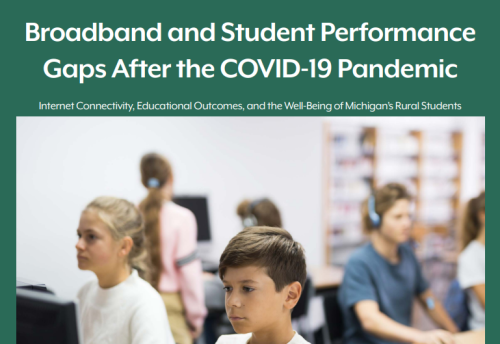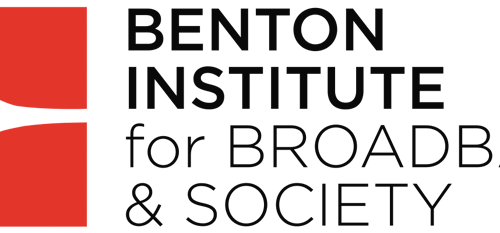In a blog entry here yesterday I described FCC Chairman Wheeler’s Title II proposal as “replanting the roots” of communication policy in the digital age. Shortly after I posted it, the Commission released a four-page summary of the proposed “New Rules for Protecting the Open Internet.” Not surprisingly, the document triggered a barrage of public responses from a range of interested parties on both sides of the issue.
After reviewing the FCC’s Fact Sheet and some of these responses, I found myself puzzled about claims regarding risks and problems associated with Title II classification. So I thought I’d invite comments to help clarify what those risks and problems really are.
In yesterday’s post I focused on:
- the core values and history related to the Communication Act of 1934;
- how today’s technology provides greatly enhanced opportunities to support those values and learn from that history and;
- how Title II treatment of Internet access seems like a sensible way to maximize the prospects for realizing these opportunities and the benefits of today’s (and tomorrow’s) information and communication technologies.
Today I want to focus more on questions of near-term strategy, tactics and risks related to the Commission’s proposed Title II action, and invite comments that clarify how and why the proposed Title II classification is problematic. It’s a claim I’ve heard often, but have difficulty understanding.
Here’s how I see it:
The courts have repeatedly struck down FCC rules designed to ensure that broadband access is provided in a non-discriminatory fashion. The primary basis for the court’s action was essentially that the FCC lacked legal authority to impose such rules as long as broadband access is classified as a Title I information service rather than a Title II telecommunication service (the Title I classification was made in 2002, when Michael Powell, current president of the National Cable & Telecommunications Association, was FCC chairman) . A review of this history and the relevant issues can be found here and the D.C. Circuit Court’s latest (January 14, 2014) decision on this issue can be found here.
Given this very clear (and repeated) signal from the courts, it seems quite sensible to me that Chairman Wheeler and his staff would conclude (as many others have) that only Title II reclassification can reliably provide the authority and flexibility to, in their words, “protect the open Internet.”
In addition to laying out a set of “New Rules to Protect an Open Internet” on page 2, the FCC’s Fact Sheet states clearly on page 3 that the Commission intends to exercise “forbearance” in its Title II treatment of broadband access. On that page it lists the major provisions of Title II that the proposed order would apply to ISPs, and those that would be subject to forbearance. The latter include rate regulation and the imposition of new taxes or fees.
To address concerns that its planned approach would discourage investment or otherwise cause serious problems, the document closes with a reference to how the mobile voice industry has fared under Title II classification:
For 21 years the wireless industry has been governed by Title II-based rules that forbear from traditional phone company regulation. The wireless industry has invested over $400 billion under similar rules, proving that modernized Title II regulation can support investment and competition. Fewer provisions will apply to ISPs than were applied to wireless carriers.
When Title II was first applied to mobile, voice was the predominant mobile service. During the period between 1993 and 2009, carriers invested heavily, including more than $270 billion in building out their wireless networks, an increase of nearly 2,000%.
For a more detailed discussion of how forbearance works and has worked, I’d recommend this post by Harold Feld, Senior Vice President at Public Knowledge, or a somewhat condensed version here.
If the FCC and Feld are correct that forbearance can and has worked well, and that the mobile voice sector is a good example of how an industry subject to it has thrived and invested aggressively for decades, then I find myself confused about what the real dangers are of the proposed Title II classification when coupled with a strong commitment to forbearance.
I can certainly understand that ISPs would be opposed. As publicly traded corporations, their shareholders would expect or even demand that they seek maximum freedom to maximize shareholder value in whatever ways they can within the law. That’s to be expected and applauded (at least by their shareholders).
But I hope I’m correct that the purpose of our nation’s communication policy is not to maximize the shareholder value of a handful of large companies who “grew up” as relatively protected and regulated monopolies and would now like to exercise the substantial market power they’ve since accrued, unfettered by either regulation or competition from networks deployed by local communities who feel poorly served by a choice of two, one or sometimes zero high-speed services available in their area (more on this last point in a later post).
All that being said, I could be missing something important here.
One of the Quello Center’s goals for this blog is to stimulate and inform constructive debate on important and timely communication policy issues. So, if you think I am missing something (or if you agree with me), please share your thoughts on the subject.



